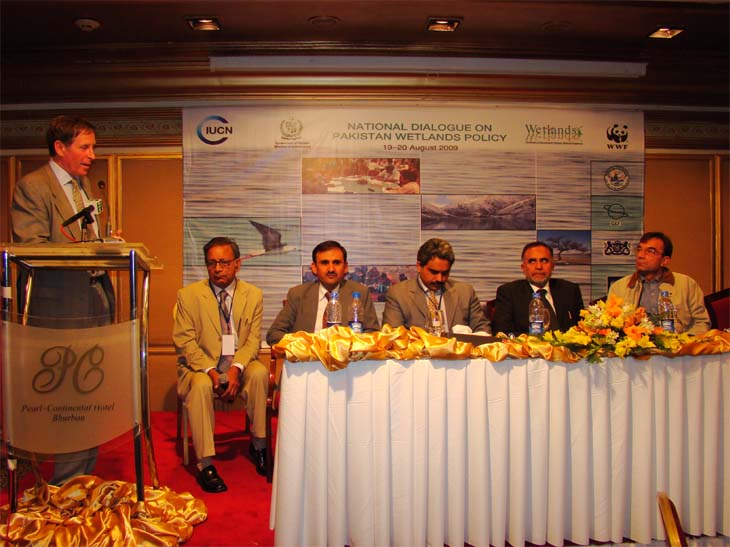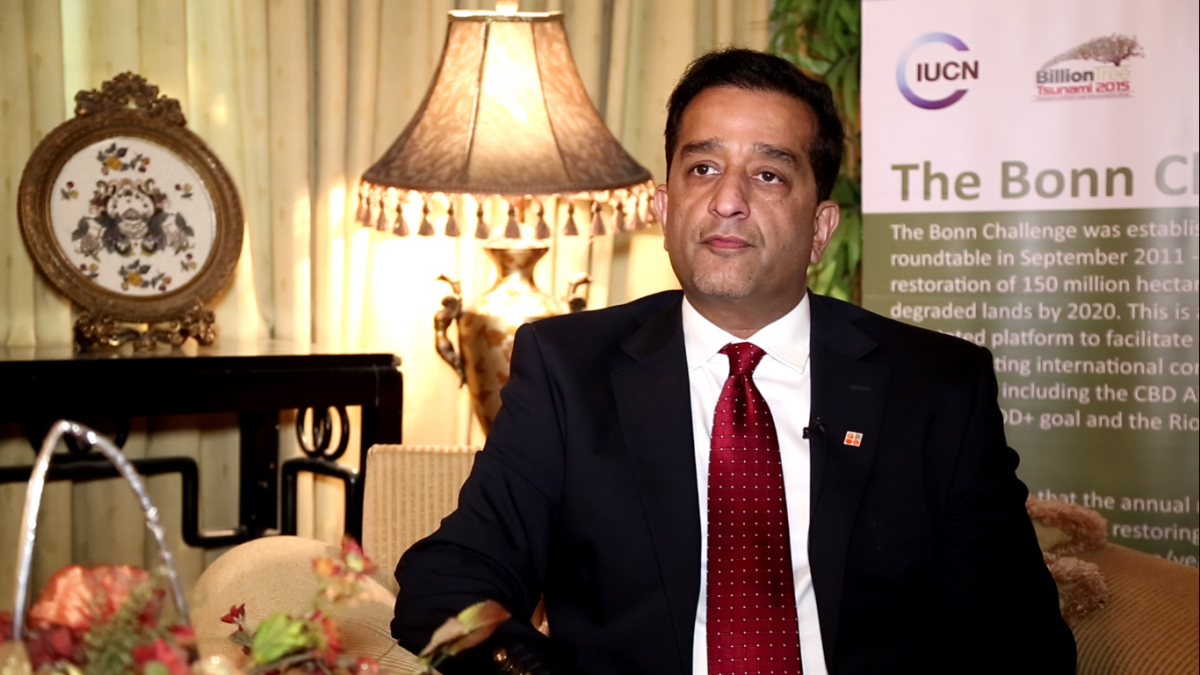Two Day dialogue on National Wetlands Policy concludes
Experts highlight need for continuity in wetlands management
BHURBAN August 20: A two day National Wetlands policy dialogue concluded in Bhurban today, with the Inspector General of Forests, Dr. Iqbal Sial calling for the establishment of a Wetlands Management Endowment Fund to fill the vaccum after the winding of the Pakistan Wetlands programme.

Photo: IUCN Pakistan
The Framework document prepared had been drafted after going through the process of 6 subnational consultation, in which all stakeholders were taken on board to highlight the provincial and local issues and discuss ways to address them
Over the two day dialogue in Bhurban, they were shared by the senior level decision makers from all provinces so that now the provinces can own the National policy and take it right down to the local level of wetland management.
The first day of the deliberations were focussed on a Writeshop where the objectives and issues were looked at in detail, while on the second day the feedback was take on the document and a general consensus developed after identification of the gaps and realignment of the strategies. Focal persons within the concerned agencies for wetland management were also identified.
The two day dialogue concluded with the presentation of the Draft of the National Wetlands Policy Framework document by Peter-John Meynell, The IUCN consultant. The document had been prepared through a consultative process that went through 6 sub national sessions involving all stakeholders.
For more information, please contact:
Afia Salam
Coordinator, Education, Communications and Outreach
IUCN Pakistan
1 Bath Island Road
Clifton Karachi
0300 9223019
www.iucnp.org
About IUCN
IUCN, the International Union for Conservation of Nature, helps the world find pragmatic solutions to our most pressing environment and development challenges by supporting scientific research; managing field projects all over the world; and bringing governments, NGOs, the UN, international conventions and companies together to develop policy, laws and best practice.
The world's oldest and largest global environmental network, IUCN is a democratic membership union with more than 1,000 government and NGO member organizations, and almost 11,000 volunteer scientists and experts in some 160 countries. IUCN's work is supported by over 1,000 professional staff in 60 offices and hundreds of partners in public, NGO and private sectors around the world. IUCN's headquarters are located in Gland, near Geneva, in Switzerland.
www.iucn.org



